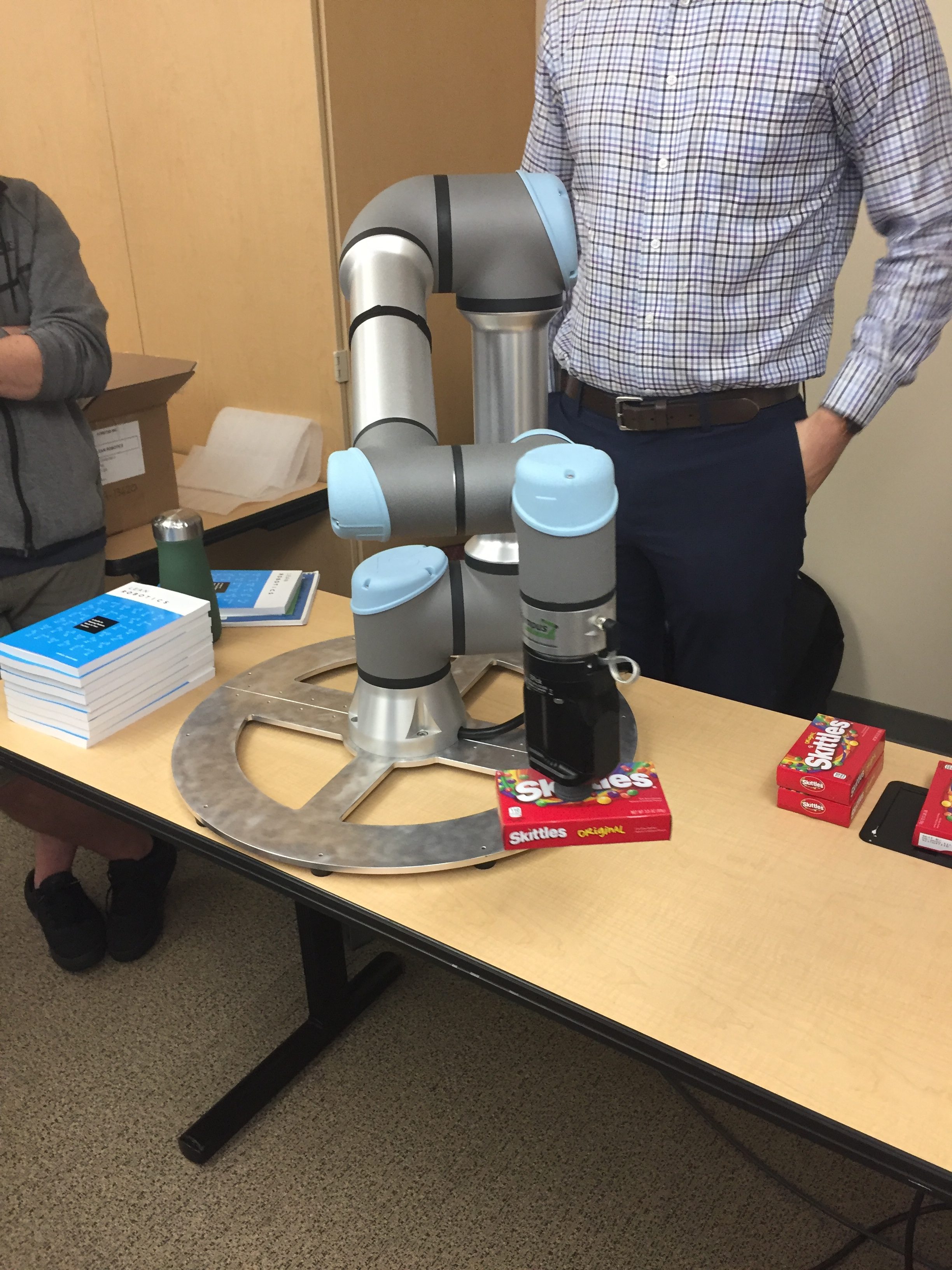
Collaborative robots (cobots) are designed to be easy to program and re-program, easily move between one facility location and another, and have a low upfront cost. They are designed to work with, not replace humans. At last week’s Coffee with Cobots, commercialization and partnership expert David McFeeters-Krone, in partnership with Oregon and Washington’s Manufacturers Extension Partnership programs and Bill Smart of Oregon State discussed the application of cobots to help expand the workforce and service the unmet needs created by the expected 2 million unfilled manufacturing job vacancies expected over the next ten years. In under a minute, it was possible to program the cobots available at the meeting to execute simple tasks. Oregon State has a charter to help local industry and is available to partner with local industries to establish a proof of concept for the use of these robots. Do you have dangerous, dirty, dull or hard tasks at your facility? Consider how cobots can assist your manufacturing process and allow you to place your humans in more interesting and value-added tasks.
McCoy Russell is a leading firm in the intellectual property space around robotics, with significant experience in areas ranging from autonomous vehicles to cobots. John Russell, one of the firm’s partners, completed his Master’s at the University of Californa, Berkeley Robotics and Human Engineering Lab that was at the forefront of human-assisting robots using force feedback control. Understanding current research and development on cobots and how facilities are using them allows us to help our clients obtain important patent protection for their business. Besides, cobots are fun.
Written by: Janina Malone – 08/21/2019

